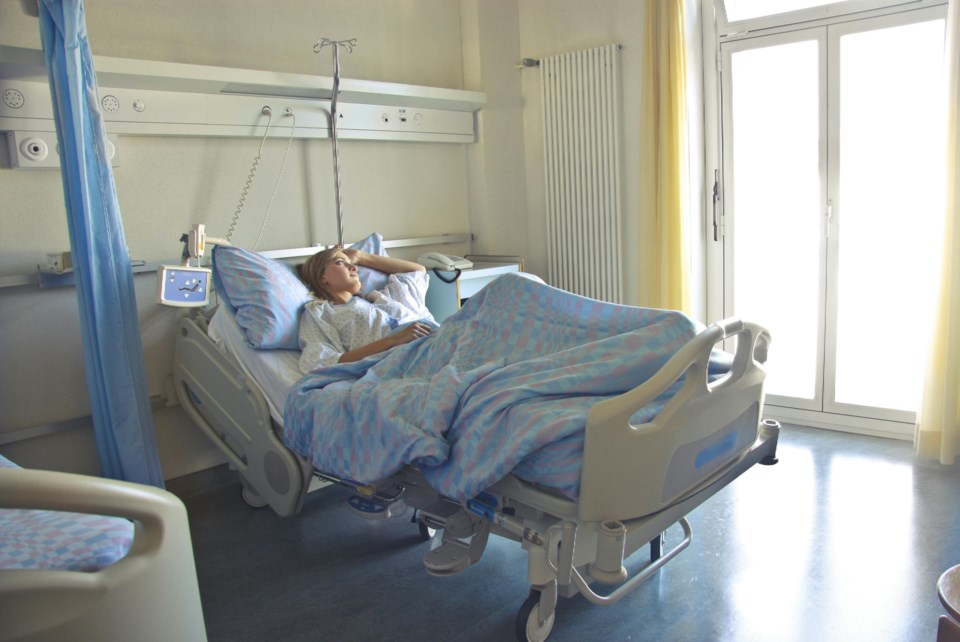SHAUNAVON — Sepsis is a health issue that transcends borders, social status, ethnicity, and beliefs. It's an equal opportunity illness that can strike anyone, at any time.
In Canada, it has been estimated that one in 18 deaths involves sepsis, making it the 12th leading cause of death in the country. Even more remarkably, it is considered the number one preventable cause of death in the country.
Despite that alarming number - and the long-term health issues it can create for those inflicted by the disease - the problem remains a relatively unknown entity among many Canadians.
However, just how common the disease can be was evident last year when a public gathering was organized in Shaunavon to discuss the issue.
Several local citizens shared their stories about their personal experiences with the disease, its scary potential and devastating impact.
Organizing the gathering was Kathy Towle, a Shaunavon resident and a sepsis survivor herself who contracted the disease after surgery. It was a nurse, making a home visit to replace dressings and remove staples, who urged Towle to go to the hospital and have the infection checked.
"It was lucky - if the nurse hadn't come by and told me to go to the hospital I probably would have died," offered Towle. My only instinct was rest - I was tired and wasn't feeling good and thought I could just sleep it off."
Sepsis is a life-threatening medical emergency that occurs when the body responds to an infection. This infection can cause damage to vital organs and, if left untreated, can lead to death. Like strokes or heart attacks, sepsis requires rapid diagnosis and treatment.
It has been reported that the risk of dying from sepsis increases by as much as 8% for every hour of delayed treatment. On average, approximately 30% of patients diagnosed with severe sepsis do not survive.
We've all known someone who's had sepsis, whether it's a family member or a public figure. Celebrities like Jim Henson, Pope John Paul II, and Christopher Reeve have all succumbed to this illness.
According to the Canadian Sepsis Foundation, the disease always begins with a primary infection. Delayed detection or treatment of an infection like pneumonia, appendicitis, or even the flu may provoke an immune response leading to sepsis and septic shock. Other causes of infection can stem from invasive procedures such as open surgeries, insertion of catheters, and other procedures where bacteria can be introduced directly into the bloodstream.
The symptoms of sepsis may be somewhat different depending on the type of primary infection a patient experiences, but universal signs include fever and/or chills, rapid heart rate and/or rapid breathing, a drop in blood pressure to dangerous levels, altered mental status (ex. confusion), decreased urination, feeling extremely ill (ex. severe pain or discomfort).
"Most people who contract sepsis think they are getting the flu," offered Towle. "In all the cases I've read about - whether it was through organizations such as the Sepsis Alliance or the Canadian Sepsis Foundation - I would say probably 90 per cent of the people thought it was just the flu to start with. But then you get sick and confused, and for many people, it can be too late then."
The Canadian Sepsis Foundation also notes that the introduction and continued use of vaccines have dramatically reduced rates of bacterial and viral infection which could have led to sepsis. It is important for everyone, but especially children, to keep up-to-date on their vaccines. The flu shot is an annual vaccine which is meant to fight the rapidly mutating influenza virus. It is recommended that all people get their flu shots as influenza may progress to sepsis. Washing hands frequently with soap and water can also help prevent the spread of infectious agents.
"I don't think a lot of people know about sepsis," stated Towle. "I think the more people we can make aware the better. It is a life-threatening disease and if people are aware of the symptoms they are more likely to seek help. It could save their life."
Globally, sepsis affects an estimated 18 million people each year.
While it is true that anyone can be struck by Sepsis, there is a group of people more vulnerable to its wrath – the elderly.
As people age, they become more susceptible to health issues, making them more prone to contracting sepsis. Men and the elderly are at increased risk of getting the disease.
To find out more about the disease visit the websites or




